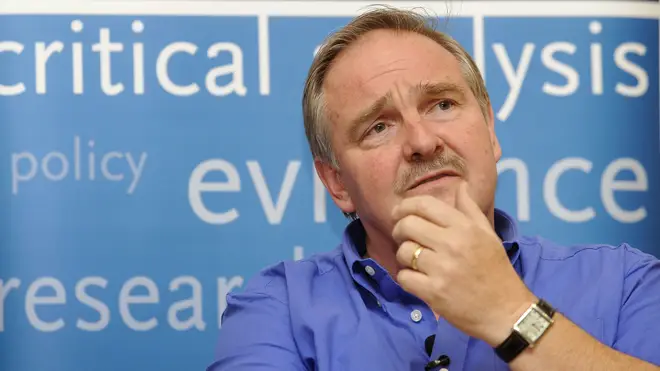
Matthew Wright 7am - 10am
30 October 2019, 23:01

Britain’s drug policy has "done nothing but go backwards" in the last decade, a former Government chief adviser has claimed.
Professor David Nutt said the country is now “worse off” than it was when he was sacked from his role as chairman of the Advisory Council on the Misuse of Drugs exactly ten years ago.
He was dismissed in October 2009 by then-home secretary Alan Johnson after he criticised policy, saying ecstasy and LSD were less harmful than alcohol and cigarettes.
During the talk at King's College in London on Wednesday night, Prof Nutt also said the Misuse of Drugs Act was "failing in its legal duty".
It came as MPs called for the decriminalisation of drugs in a bid to curb the rise in deaths.
Drug-related deaths rose to 2,670 in England last year, an increase of 16 per cent since 2017.
Prof Nutt said he "fought back" after his dismissal and decided to continue analyse drugs, but claimed there had been a "litany of failure" by UK Governments, including the use of spice growing in prisons and the number of deaths in men under the age of 50 due to alcohol on the rise.
He said the number of deaths among women due to alcohol was also beginning to rise, claiming many were drinking more as they were "earning more and are liberated".
Research carried out in 2010 showed alcohol was the "most harmful drug in the UK" and Prof Nutt said this still stands and "very little has changed now".
He warned it was "very likely" the UK will soon endure a rise in deaths from fentanyl - the powerful opioid used as pain medication which is sometimes mixed with other drugs like ecstasy or sold instead of this by dealers.
Decriminalisation "would be a good start", Prof Nutt said, as he called for the drugs testing, "safe injection rooms" and a "mass rollout of naloxone to "thwart the expansion of fentanyl".
His recommendations, which echoed those made by the committee, also included shifting the responsibility for drugs policy from the Home Office to the Department of Health and Social Care.
He pointed to pledges by the Liberal Democrats and the Green party to make recreational drugs legal and said the "other two major parties" need to "grow up" and talk seriously about drugs.
Last week, the Government said it "has no plans to decriminalise drug possession", saying this "would not eliminate the crime" or address the harms.